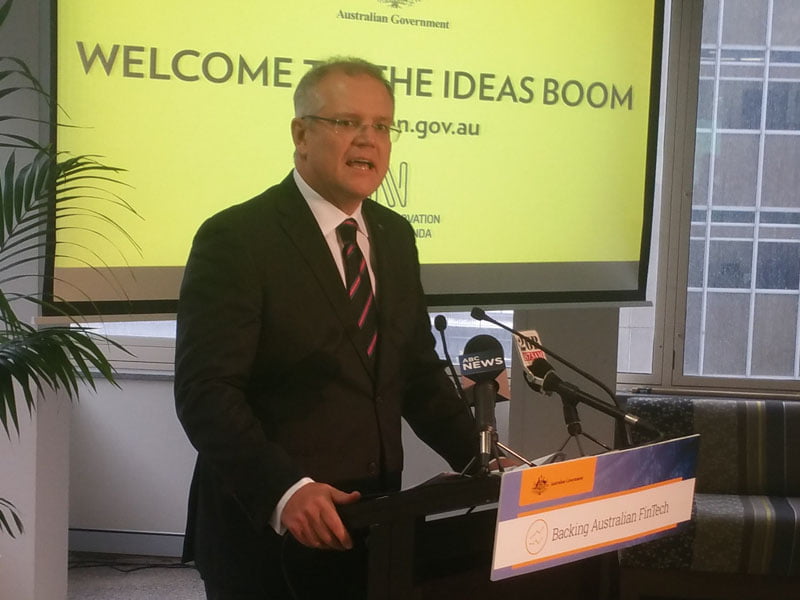The Australian FinTech community has hit back at attempts by the big banks to use the recent Facebook data harvesting scandal as evidence the open banking movement should be slowed.
While representatives from the banking sector have argued there could be similar privacy issues with the data collected through open banking being hijacked by third parties, FinTech Australia has argued that the process could actually prevent such an incident occurring.
An open banking regime would force banks to let consumers to securely share their financial data with other banks and third party providers in order to get a better deal. The Federal government first flagged its intention to adopt such a scheme in last year’s budget, and launched a review into the concept later that year.

The review, led by King & Wood Mallesons partner Scott Farrell, gave the green light to open banking earlier this year, and government is expected to further outline its plans in Scott Morrison’s third budget next month.
But the big banks are now attempting to use the recent Facebook scandal, where the personal data of about 50 million users was harvested and sold to a data analytics firm which used it to influence the 2016 US presidential election, to slow down the movement to open banking and to reduce the amount of data on offer.
In a submission to Treasury, Australian Banking Association chief executive Anna Bligh referenced the Facebook incident and stressed the importance of informed consent.
“Our number one area of concern is around customers understanding what they are consenting to and what their data will be used for. Banks take data privacy and security very seriously,” Ms Bligh said.
“Just recently it was revealed that data from a social media platform was being used for other purposes, we do not want to see a repeat of this with the introduction of open data in Australia,” she said.
The Farrell report already recommended that the open banking scheme require explicit, fully informed consent from users before they access or share their financial data.
In its own submission, the Commonwealth Bank Australia also cited the Facebook scandal, saying there would “inevitably” be privacy risks and arguing for a “phased roll-out”.
“The current privacy concerns surrounding Facebook’s use of customer data highlights the need for increased customer control,” the submission said.
But industry group FinTech Australia has argued that the Facebook scandal highlights why open banking should be implemented as soon as possible.
“FinTech Australia feels that the CBA proposal to slow down the introduction of open banking would not address any of the risks highlighted by the Facebook issue,” FinTech Australia’s open banking policy working group co-lead and MoneyBrilliant CEO Peter Lalor told InnovationAus.com.
“More importantly, the need to educate consumers and to ensure they are aware of what their data can be used for is paramount to both protecting consumers and the success of open banking in the long-term,” he said.
“If anything, the Facebook data privacy controversy outlines the need to move forward promptly with an open banking framework in Australia, rather than delay it.
“The government’s proposed open banking framework has a robust approach to customer data management.
“It will see a comprehensive set of controls to ensure that customers need to explicitly ‘opt in’ to take advantage of open banking.”
The process involved with open banking differs greatly to what happened with Facebook’s data handling, which has caused outrage around the world, fellow co-lead and ZipCo chief strategy officer Tommy Mermelshtayn said.
“The open banking framework proposes an accreditation regime for entities who want to use customer data. All of these factors were missing in the case of the recent Facebook controversy,” Mr Mermelshtayn told InnovationAus.com.
“Instead, Facebook buried a consumer’s consent deep in the sign-up process, and did not revisit it over time, which placed consumer data at greater risk.”
The open banking debate has pitted the FinTech industry against the bigger banks. While all of the big banks have offered their tentative support for the concept, they have disagreed with FinTechs over the speed of the process and what data should be included.
Open banking is viewed as a great opportunity for FinTechs, giving them the opportunity to compete with bigger banks and to offer their products more easily to consumers.
The Farrell report recommended that the banks would have to be able to provide consumers with their data within a year of the official scheme being announced. But this timeframe has been labelled “unfeasible” and “very ambitious” by the big banks.
“This would not provide sufficient time for standards and rules design, and the subsequent technology build that requires the standards and rules before it can begin,” Ms Bligh said.
“The banking industry believes that rules and standards must first be designed to ensure consistency across all industries that will eventually take part in the sharing of data,” she said.
“Along with a number of other industry bodies, the ABA are calling for a more appropriate timeframe to properly implement this reform.”
The banks are arguing for a 12 month timeframe after the rules and standards for open banking are agreed upon, and another 12 month for smaller banks.
The Financial Rights Legal Centre and Consumer Action Law Centre also gave a joint submission to Treasury, saying they are approaching open banking with “expectation and wariness”.
They argue for consumers to be given a right to delete their data, something which was not recommended in the Farrell report.
“If consumers are to have confidence in the open banking regime, this distills down to the need to having control over their own data and to know that if they withdraw consent at any time that data will be deleted,” the joint submission said.
“If a right to erasure is not included, future headlines will include the names of accredited open banking entities rather than Facebook and Cambridge Analytica,” it said.
Do you know more? Contact James Riley via Email.

